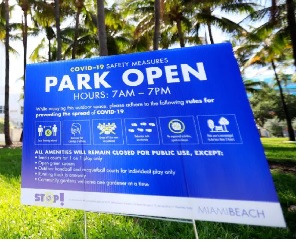 By the end of April 2020, the coronavirus was widespread across the world affecting not alone the lives of many but also innumerable livelihoods. Most countries were struggling to control the pandemic while considering how best to end lockdowns and resuscitate their economies. The income support measures put in place to mitigate the economic effects led to huge costs which were not sustainable in the medium to the longer term, as health experts predicted that the virus could continue for some time. The lockdowns resulted in business closures, with swift and deep recessions causing unprecedented levels of unemployment in many countries. In Ireland alone, the economic forecasts were dismal. The 2020 Stability Programme Update forecast that the Irish GDP would fall by 10.5 %, with a peak in unemployment of 22%, and a fiscal deficit of €23billion. Even these figures assumed a gradual recovery in the second half of 2020, followed by big improvement in 2021. Countries started to devise multi-phased plans to ease restrictions and restore economic activities. These were generally phased re-openings based on various criteria in relation to control of the virus, especially its reproduction rate less than one, as well as hospital and intensive care admissions and discharges. Any easing of restrictions was dependent on ability to control the virus and progress through the different phases as circumstances permitted. The big fear everywhere was another spike in the virus, which would lead to the re-imposition of restrictions. Many countries were following advice from the World Health Organisation (WHO): test, trace, isolate suspected and confirmed cases. Responsibility to staff and customers was foremost in these plans. Restoring economic activities in a responsible manner became a huge challenge for all countries, as they sought to control the virus while getting their economies back to work. State revenue had plunged in every country and expenditure exploded, with new demands emerging to help almost every organisation for economic damage arising from the pandemic. Some organisations believed that they could gradually recover, but others, especially in some service enterprises, felt that it would be very difficult, and that there would be liquidations and redundancies. Companies had accumulated debts to banks, tax authorities, rent, and other costs, while facing delayed and reduced income streams. They required liquidity and forbearance with payments to survive. The objective became to keep as many businesses as possible in operation and avoid contagion. Unlocking restrictions and moving to a new normal became huge challenges for all countries. Exploring Mayo by Bernard O’Hara is now available Worldwide as an eBook for the amazon Kindle application. The print version of Bernard O’Hara’s book Exploring Mayo can be obtained by contacting www.mayobooks.ie. www.mayobooks.ie also sell the print versions of Killasser - Heritage of a Mayo Parish , Anseo and Davitt. Bernard O'Hara's book entitled Killasser: Heritage of a Mayo Parish is now on sale in the USA and UK as a paperback book at amazon.com, amazon.co.uk or Barnes and Noble It is also available as an eBook from the Apple iBookstore (for reading on iPad and iPhone), from Amazon.com and Amazon.co.uk (Kindle & Kindle Fire) and from Barnesandnoble.com (Nook tablet and eReader). An earlier publication, a concise biography of Michael Davitt, entitled Davitt by Bernard O’Hara published in 2006 by Mayo County Council , is now available as Davitt: Irish Patriot and Father of the Land League by Bernard O’Hara, which was published in the USA by Tudor Gate Press (www.tudorgatepress.com) and is available from amazon.com and amazon.co.uk. It can be obtained as an eBook from the Apple iBookstore (for reading on iPad and iPhone), from Amazon.com and Amazon.co.uk (Kindle & Kindle Fire) and from Barnesandnoble.com (Nook tablet and eReader). |